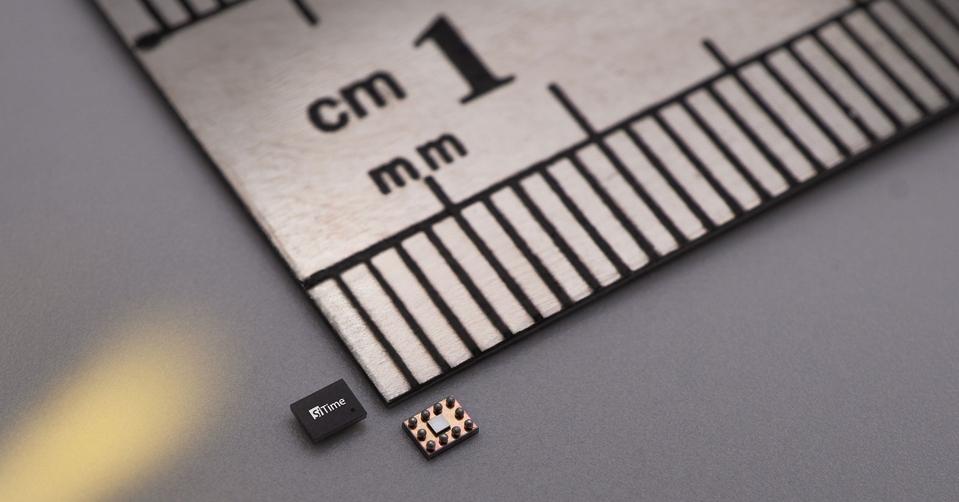As mobile devices continue to take on more complex tasks—from real-time navigation to AI-assisted imaging—precision system timing has become an increasingly critical element of overall performance. For years, timing in smartphones and IoT devices of all sorts has been handled by traditional quartz-based components. As I’ve covered previously, it’s been like this for many decades. However, as devices shrink and workloads intensify, legacy solutions are starting to show their limitations.
SiTime, a Silicon Valley company specializing in MEMS-based timing solutions — tiny mechanical structures built on silicon that deliver precise system clock timing with superior resilience to shock, vibration, and temperature fluctuations — is expanding its footprint to the mobile market with the introduction of its SiT30100 Symphonic clock generator. The SiT30100 is a compact, integrated timing device designed to support the growing demands of 5G connectivity, Global Navigation Satellite Systems, and intelligent edge processing. More importantly, it represents SiTime’s latest move to bring MEMS technology to the center of mobile system design, representing a considerable opportunity in the market, from smartphones to the IoT, physical AI applications like robotics, and more.
Compact Integration Meets Thermal Resilience And Precision
At just 2.22 mm², Symphonic is a highly integrated component that replaces multiple discrete timing devices with a single, configurable solution. It includes a built-in MEMS resonator and temperature-sensing circuitry, allowing for precise frequency control even under the wide thermal swings mobile devices, like smartphones on a summer beachfront, are exposed to, or mechanical stress. This kind of stability matters in mobile environments, where compact enclosures, heat buildup, and power-saving features all place unique demands on system clock timing solutions.
MEMS timing components have been gaining traction in recent years, largely because they offer a combination of durability, programmability, and miniaturization that traditional quartz components can’t match. SiTime has been one of the primary drivers of that transition, and Symphonic continues that trend by targeting a critical gap in the mobile and IoT design landscape—ultra–reliable, low-power timing in space-constrained environments.
For mobile OEMs, the benefits go beyond footprint reduction. The SiT30100 supports up to four programmable outputs—frequencies like 76.8, 38.4, and 19.2 MHz—for use in 5G baseband, RF, and GNSS subsystems. It also includes system-level temperature compensation capabilities that allow for frequency stability down to ±0.5 parts per million, which can translate to faster GPS lock times, when you’re trying to sync-up with that Uber ride, and better overall signal integrity for cellular communications. You can think of these types of timing solutions as the heartbeat of a mobile device or IoT platforms, keeping its various subsystems in sync and operating at top performance.
“Every generation of mobile devices becomes smarter, delivering greater functionality, personalization and automation,” said Rajesh Vashist, CEO and chairman of SiTime. “Timing devices must withstand thermal and mechanical stressors as processing and connectivity speeds increase. Our newest mobile clock generator delivers the precision timing required for advanced connectivity of next-generation mobile devices.”
Aligning With The Shift Toward AI-First Mobility
While the SiTime’s Symphonic series of clocks generators won’t be a consumer-facing feature, it reflects a broader evolution in component selection priorities for system designers. As mobile platforms increasingly integrate AI capabilities, dense wireless protocols, and real-time environmental awareness, adaptable, precise and reliable clock and communications timing is becoming essential to delivering consistent performance and device responsiveness.
SiTime’s broader strategy aligns well with these market needs. The company is heavily invested in silicon MEMS timing as a replacement for legacy quartz solutions across a wide range of performance-sensitive systems, applications and use cases, and not just in smartphones. The SiT30100 is sampling now for customer design applications.

